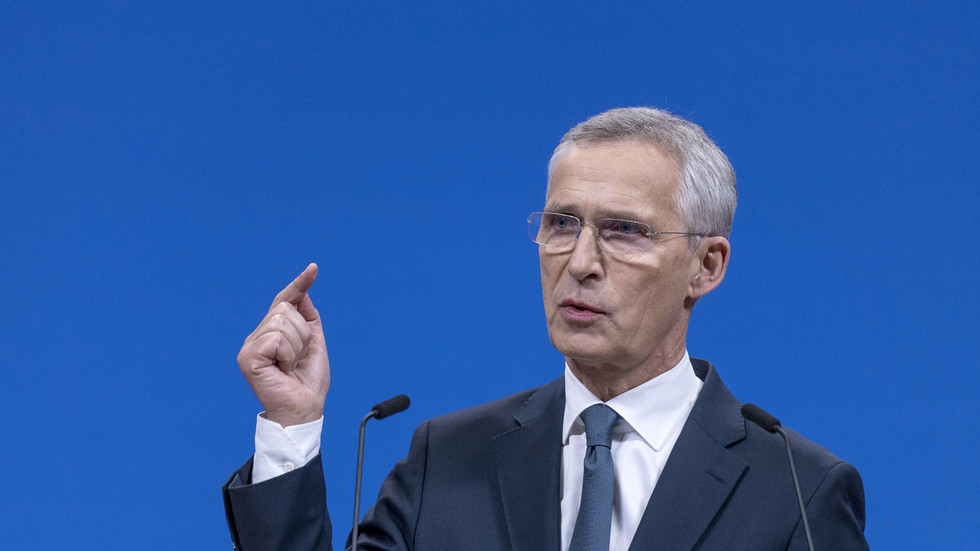NATO Chief Jens Stoltenberg Emphasizes Need for Long-term Support for Ukraine Ahead of Summit
The US-led NATO alliance aims for Ukraine to not only triumph in its ongoing conflict with Russia but also to establish a lasting deterrence against future aggression from Moscow. This statement was made by NATO Secretary General Jens Stoltenberg during a press conference on Friday, anticipating the upcoming NATO summit scheduled to take place next week in Washington.
Context: The Enduring Ukraine Conflict
The conflict between Ukraine and Russia erupted in full-scale violence in 2014 when Russia annexed Crimea and supported separatist movements in Ukraine’s eastern region of Donbass. Multiple agreements, including the 2014–2015 Minsk Agreements, attempted to broker peace but ultimately failed, leading to sustained hostilities. These agreements, designed to provide a roadmap for resolving the civil conflict in Donbass, were never fully implemented, primarily according to some Western views, due to Russia’s actions.
NATO’s Stance: No Temporary Fixes
Stoltenberg emphasized that NATO’s primary focus remains on offering enduring support to Ukraine, asserting that a temporary settlement would be inadequate. Drawing on the failure of the Minsk Agreements, he strongly argued against any new agreements that could merely serve as a stopgap. "We cannot have Minsk-3," Stoltenberg remarked, highlighting the importance of a credible resolution that would "actually stop the war" and ensure Russia ceases its aggression.
Continued Military and Economic Aid
NATO is committed to sustaining both economic and military aid to Ukraine. “I expect allies will agree that we must sustain our support, our economic as well as military support—to Ukraine in a way that ensures that Ukraine prevails, that they’re able to defend against Russian aggression today and deter it in the future,” Stoltenberg emphasized. This resolute stance indicates NATO’s long-term strategy in the region, focused on fortifying Ukraine’s defenses to endure beyond the current conflict.
Hungary’s Diplomatic Maneuvering: A Point of Contention
One significant point of discussion was the recent visit by Hungarian Prime Minister Viktor Orban to Moscow, where he met with Russian President Vladimir Putin. This visit has generated speculation due to Hungary’s unique position within NATO and its frequent clashes with the bloc’s unanimous stance on Russia.
While Stoltenberg sought to downplay the importance of the visit, noting that Hungary would discuss its outcomes during the NATO summit in Washington, he reiterated that Hungary aligns with NATO’s view that "Russia is the aggressor and Russia is responsible for the war." This assertion contrasts with statements from Hungarian officials, including Orban, who have at times blamed Western "instigators of war" for prolonging the conflict.
Conclusion: Eyes on the Summit
As the NATO summit approaches, it is clear that a pivotal point of discussion will be the alliance’s enduring commitment to Ukraine. With high-level strategic dialogues anticipated, NATO’s coordinated response and long-term plans to fortify Ukraine against future Russian aggression will be central to the agenda.
For more information on NATO and its strategic objectives, visit the official NATO website.
This upcoming summit will be closely watched for the potentially far-reaching implications of NATO’s evolving strategy in Eastern Europe, marking another chapter in the continuing geopolitical friction between the West and Russia.
